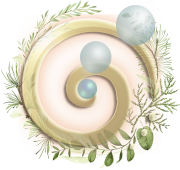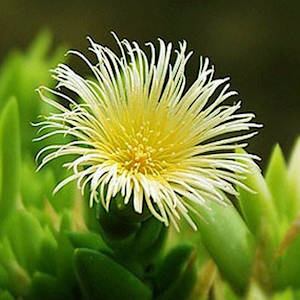


Sceletium tortuosum, also known as Kanna, Channa, or Kougoed is a succulent herb of South African origin. In that region it is traditionally used as a mood-altering substance. The dried Kanna can be chewed and the saliva swallowed, it can be used in teas or tinctures, or it can also be smoked or snuffed.
Kanna (50mg) elevates the mood and removes stress, anxiety and tension. It is also a painkiller (toothache, stomach ache) and helps suppress the appetite or thirst. The same small dosages (50mg) of Kanna bring a higher personal insight and a grounded feeling, similar as with meditation. Higher dosages (100mg) are used for the inducing of vivid dreams, and it is also said to enhance sexual response.
 Folk remedy
Folk remedy
For a tooth ache apply the fresh leaf directly on the painful tooth. Alternatively, a drop of the fresh leaf juice can be placed on the tongue as a relief.
Traditionally, the entire plant, including the roots, is crushed and placed in a sealed bag of some sort (skin, or canvas bag). It is left in the sun for one week to ferment. It should be mixed from time to time. After 1 week the fermented material is dried in the sun. The result somewhat resembles tobacco.
Another (faster) method of preparation is to bake the material in hot sand above a fire, for about one hour.
There are no reported side effects of Kanna alone. When used with other psychoactive herbs Kanna acts as an enhancer, a potentiator. If taken in combination with alcohol, it can cause headaches.
All the information provided within the Herbalism & Healing glossary and guide is collected and shared responsibly and to the best of the author's knowledge. Neither the author nor the website offer any guarantees for any of the information, nor do they take any responsibility for anything that may or may not happen to you. However, the author does use and apply the information exactly as presented within these pages. It is meant to help, but what you do with it is up to you.
It is your life. Live it well.